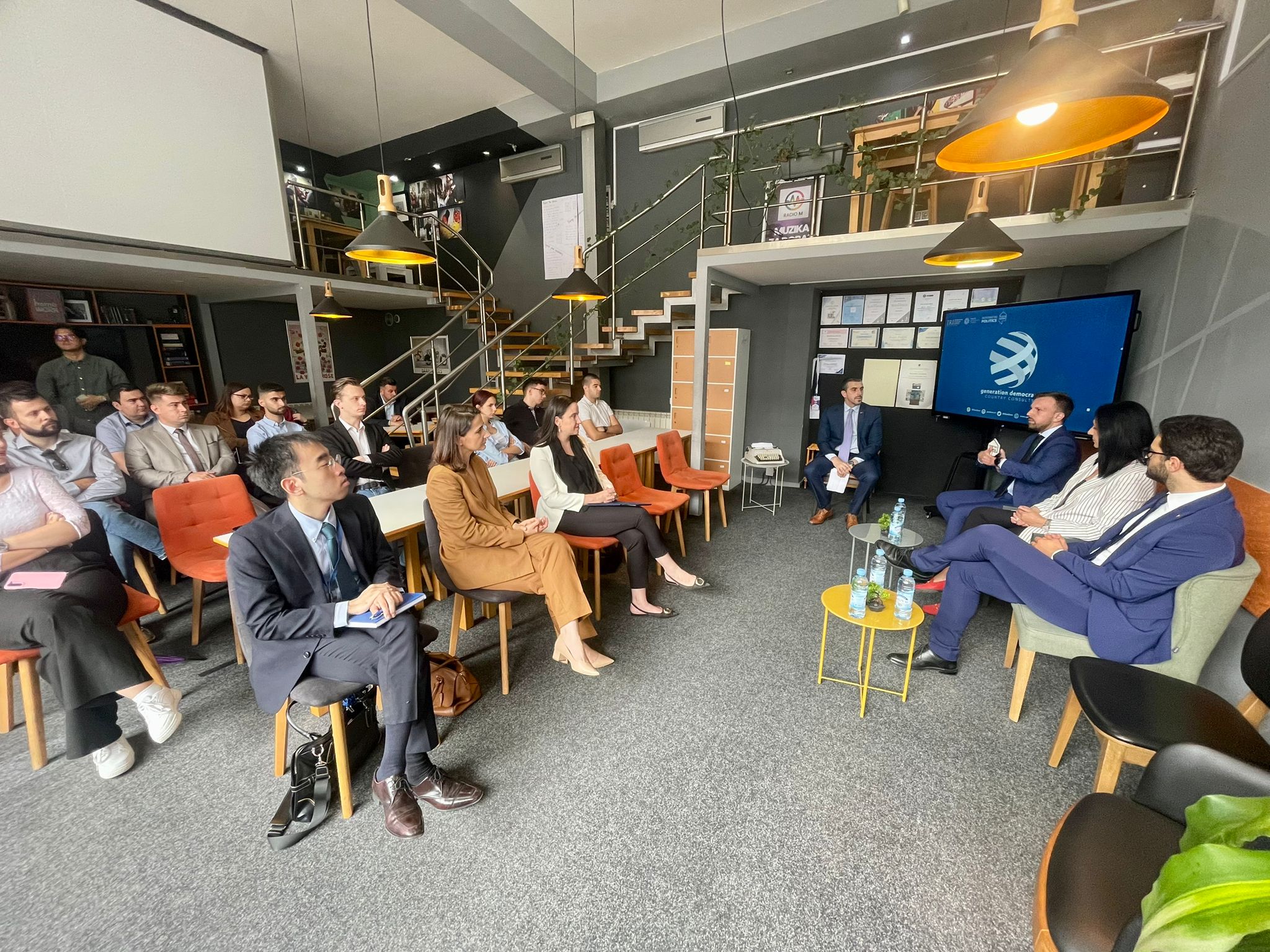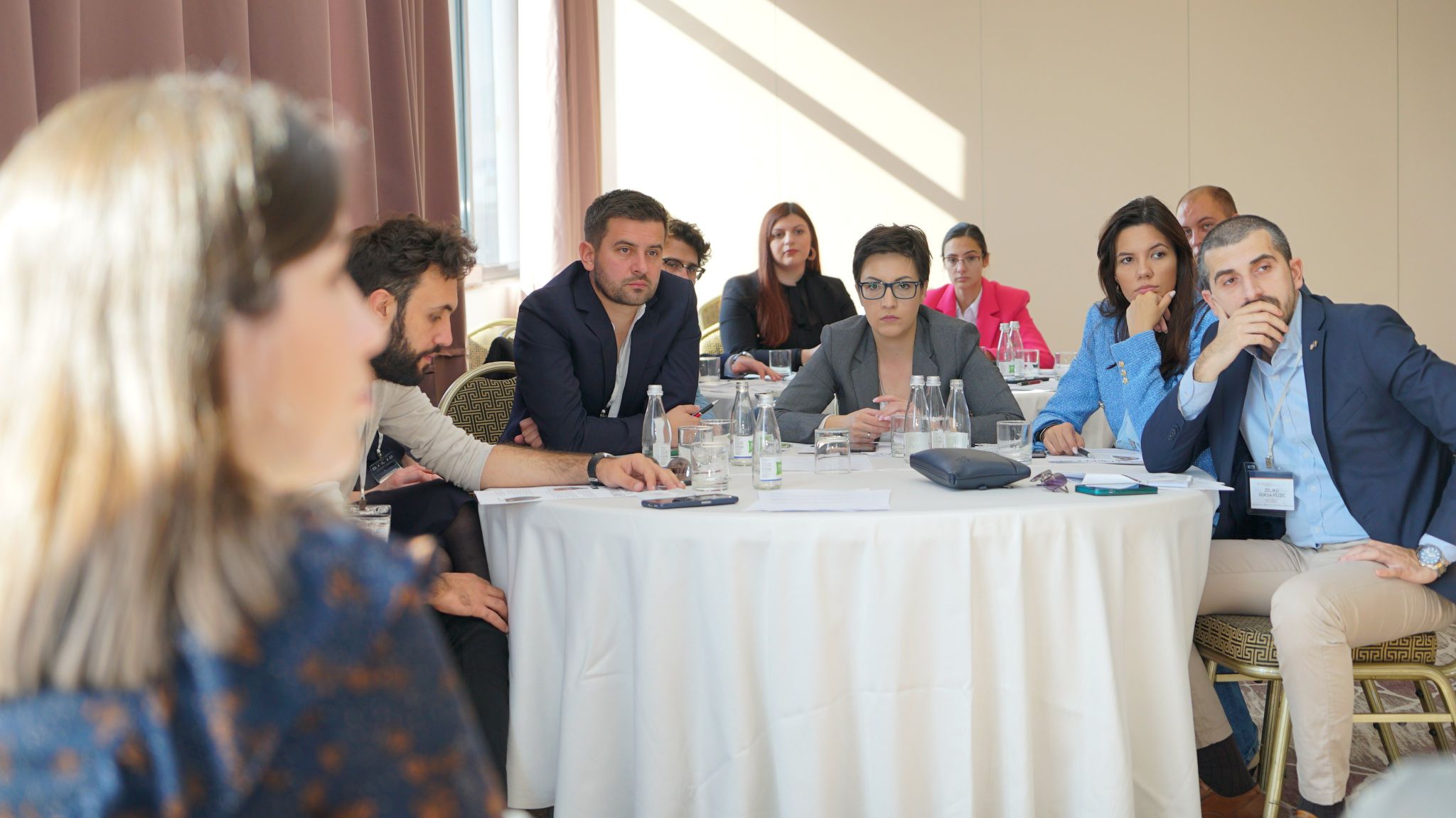Forging a Better Tomorrow: Lessons for Today’s Youth from Bosnia’s Past

Amidst the current headlines dominated by the conflict in Ukraine, International Youth Day presents an opportune moment to reflect on the profound lessons learned from the war’s legacy in Bosnia and Herzegovina (BiH). While the world’s attention may have shifted to other pressing crises and global dynamics, the enduring aftermath of the aggression on BiH holds critical insights for the future generation. As we commemorate this day, it becomes ever more vital to explore the lasting impact of past conflicts and the pivotal role of young people in shaping a more resilient and harmonious world.
The Pasts Shadow on Today
From 1992 to 1995, BiH faced an unprecedented wave of aggression, witnessing unimaginable acts of violence. Around 100,000 lives were lost, with over 2 million people displaced. Just in the country’s capital, records show that 11,541 civilians, including 1,601 children, were killed, with more than 50,000 injured. Sarajevo faced relentless bombardment, with an average of 329 mortar shells fired daily and over 500,000 bombs dropped in total. In the Srebrenica Genocide alone, 8,000 Bosniak Muslim men and boys were systematically executed.
Over time, the echoes of war continue to shape the nation’s political landscape. Within the borders of Bosnia and Herzegovina, the Republika Srpska (RS) grapples with a significant influx of Russian influence, further complicating an already delicate political situation. Compounded by their leading politicians exploiting genocide denial and drawing support from praising politicians and warlords convicted of war crimes, the country faces a complex challenge. The lack of assertive action from global powers, assigned as guarantors of the Dayton Peace Accords, combined with inadequate implementation of reforms by local and international stakeholders, has created a precarious environment. This vulnerability leaves B (BiH) susceptible to the lingering grip of ethnic tensions.
As these influential actors fall short in taking strong and coordinated actions, young people, caught in the crossfire of weak policies, bear the brunt of this unresolved legacy, shaping their lives in the shadow of lingering ethnic strife. To secure a more promising future, it is essential for these key stakeholders to rise above complacency and work collectively in fostering genuine reconciliation, social cohesion, and meaningful progress towards lasting peace for the sake of the country’s youth.
The Way Forward

Grappling with the enduring aftermath of war, young people in BiH are working tirelessly to rebuild their communities through implementing youth-led projects like Homework Hub, the first ever youth-led university and freelance hub in BiH, which was started and is managed by young leaders from the Generation Democracy network. Young political leaders band together through initiatives like the International Republican Institute’s ALPI program and the NDI led G9 youth initiative, implementing real change by introducing practice-oriented entrepreneurial hubs. These dedicated young leaders fearlessly debate critical subjects like corruption in the COVID-19 crisis, offering valuable recommendations to the BiH government to strengthen transparency and accountability in crisis management.
Sarajevo’s aspiration to become the 2026 European Youth Capital presents an opportunity to infuse the city with new energy and ignite positive transformations. Winning this coveted title will enable a stronger bond between Bosnian youth and their European counterparts, fostering an enriching exchange of ideas and experiences. Achieving the youth capital status will compel the government to explore innovative programs, showcasing BiH’s values to the world while opening up to global engagement. This achievement will signify a step towards integrating BiH into the international community, providing young people a platform to demonstrate their resilience, creativity, and dedication to forging a brighter future.
On a global level, events such as the second Summit for Democracy and the Copenhagen Democracy Summit provided a vital space for young voices to speak out on crucial issues, demanding accountability from world leaders. By incorporating youth perspectives from post-conflict countries like BiH, a much-needed debate emerges, focusing on rectifying past mistakes, preventing future conflicts, and bolstering nations vulnerable to autocratic forces. These discussions possess the power to bridge the gap between the shadows of war and the world’s collective responsibility to safeguard and empower the next generation in shaping their own futures.
Far Reaching Lessons
In the context of the current geopolitical situation and the potential risks it brings to both BiH and Ukraine, domestic decision-makers and international stakeholders must prioritize the inclusion and empowerment of young people. To prevent the repetition of mistakes made, it is crucial that young voices and aspirations are elevated and amplified in the decision-making processes. By engaging and empowering the youth, we can ensure that the challenges they face are addressed holistically and with long-term vision.
The lessons from BiH underscore the importance of listening to the concerns and perspectives of the youth who have lived through conflict and its aftermath. By actively involving young people in discussions, policy-making, and peace-building efforts, we can tap into their resilience, creativity, and innovative ideas. Young voices can offer fresh insights and approaches to address the complexities of ethnic tensions and security challenges.
On this International Youth Day, this is a moment to embrace and empower the youth, the agents of positive change, through initiatives of meaningful political and civic participation. By investing in the aspirations and potential of young people, we sow the seeds of a more harmonious and resilient society. Let us stand together in solidarity and commitment, ensuring that no young person is left behind, and that they are empowered to lead us into a brighter tomorrow.
Top